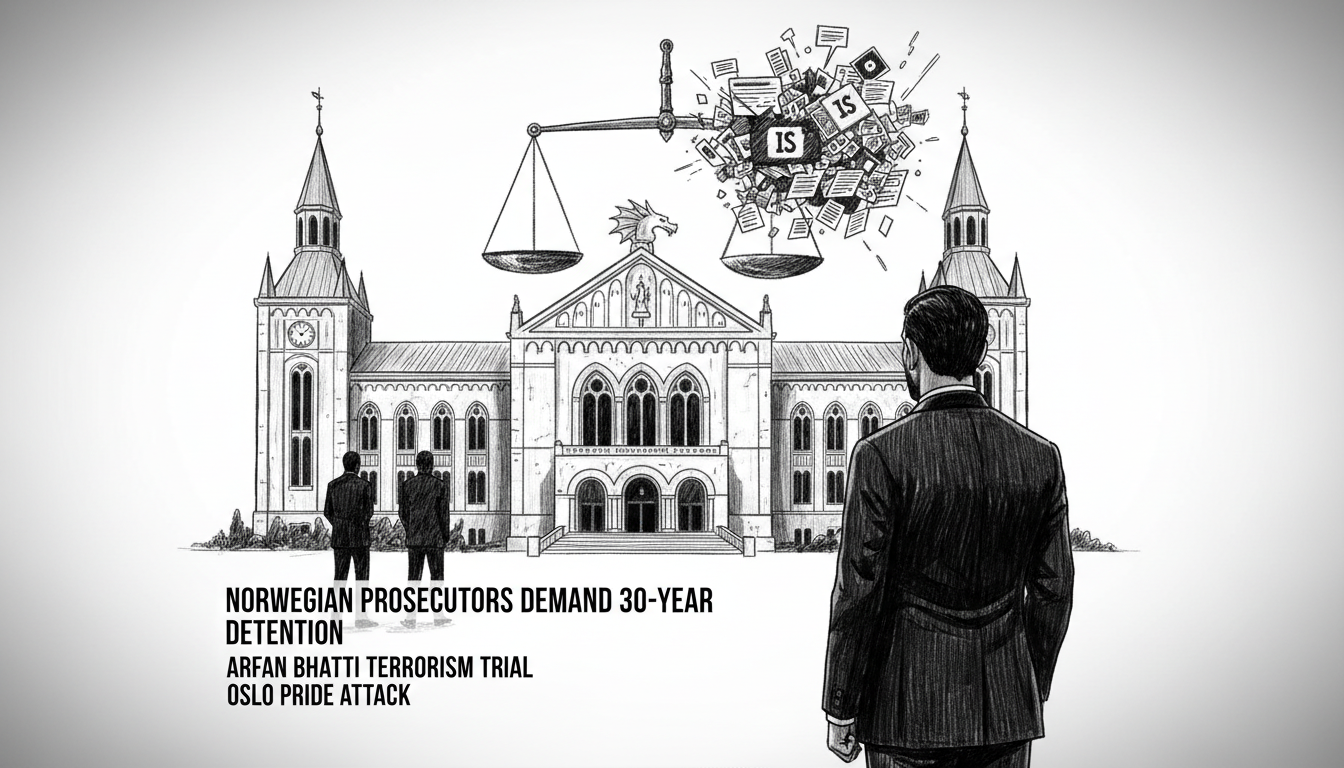Norwegian prosecutors have requested a 30-year preventive detention sentence for Arfan Bhatti, the man accused of involvement in the 2022 Oslo Pride shooting. The prosecution specifically seeks a minimum detention period of 20 years before any potential release consideration.
Lead prosecutor Aud Kinsarvik Gravås presented the sentencing demand in court proceedings this week. She stated that evidence supports convicting Bhatti for both complicity in serious acts of terrorism and attempted terrorist conspiracy. The prosecution believes the appropriate starting point should be a 30-year prison sentence.
Bhatti faces charges related to the June 25, 2022 mass shooting in Oslo that killed two people and injured multiple others during Pride celebrations. He also stands accused of planning additional terrorist attacks, which prosecutors argue should separately result in a nine-year prison term.
The defendant maintains his innocence on all charges. Prosecutors counter that no mitigating circumstances exist in his case. They describe Bhatti as presenting a very high risk of reoffending based on his extensive criminal history.
Gravås characterized Bhatti as what one might call a professional violence perpetrator. She emphasized that society requires protection from him far into the future through the preventive detention system.
Preventive detention represents Norway's most severe punishment, reserved for cases where standard prison sentences seem insufficient for public protection. This indefinite sentencing approach allows for five-year extensions as long as courts determine continued detention remains necessary.
Defense attorney John Christian Elden announced plans to seek Bhatti's complete acquittal during upcoming proceedings. He criticized the prosecution's case as containing substantial speculation with limited factual basis.
Forensic psychiatrists monitoring Bhatti throughout the trial concluded he scores fully on psychopathy assessments. Court-appointed psychiatrist Gunnar Johanssen testified that Bhatti presents high violence risk if convicted of the current charges.
The case centers on whether Bhatti collaborated with shooter Zaniar Matapour, who received his own 30-year preventive detention sentence earlier. Matapour testified that his shooting spree stemmed from anger toward police and government systems rather than anti-LGBTQ terrorism.
Prosecutors dispute this characterization, pointing to evidence including a recorded loyalty oath to Islamic State that Matapour sent to Bhatti before the attack. They allege Bhatti forwarded this pledge to someone he believed represented IS leadership, who actually served as an undercover Norwegian intelligence agent.
Chat logs presented in court show Bhatti discussing how publishing Matapour's oath would create fear in Western nations and among non-believers. The defendant claims he merely adopted extremist jargon during conversations with the undercover agent.
This case tests Norway's legal approach to terrorism prevention while raising questions about radicalization patterns within the country. The outcome will likely influence future prosecutions involving alleged terrorist networks operating in Nordic nations.
Norwegian courts face the challenging task of balancing public safety concerns with defendants' rights in terrorism cases. The Bhatti prosecution demonstrates how Nordic countries confront evolving security threats while maintaining their justice systems' integrity.

